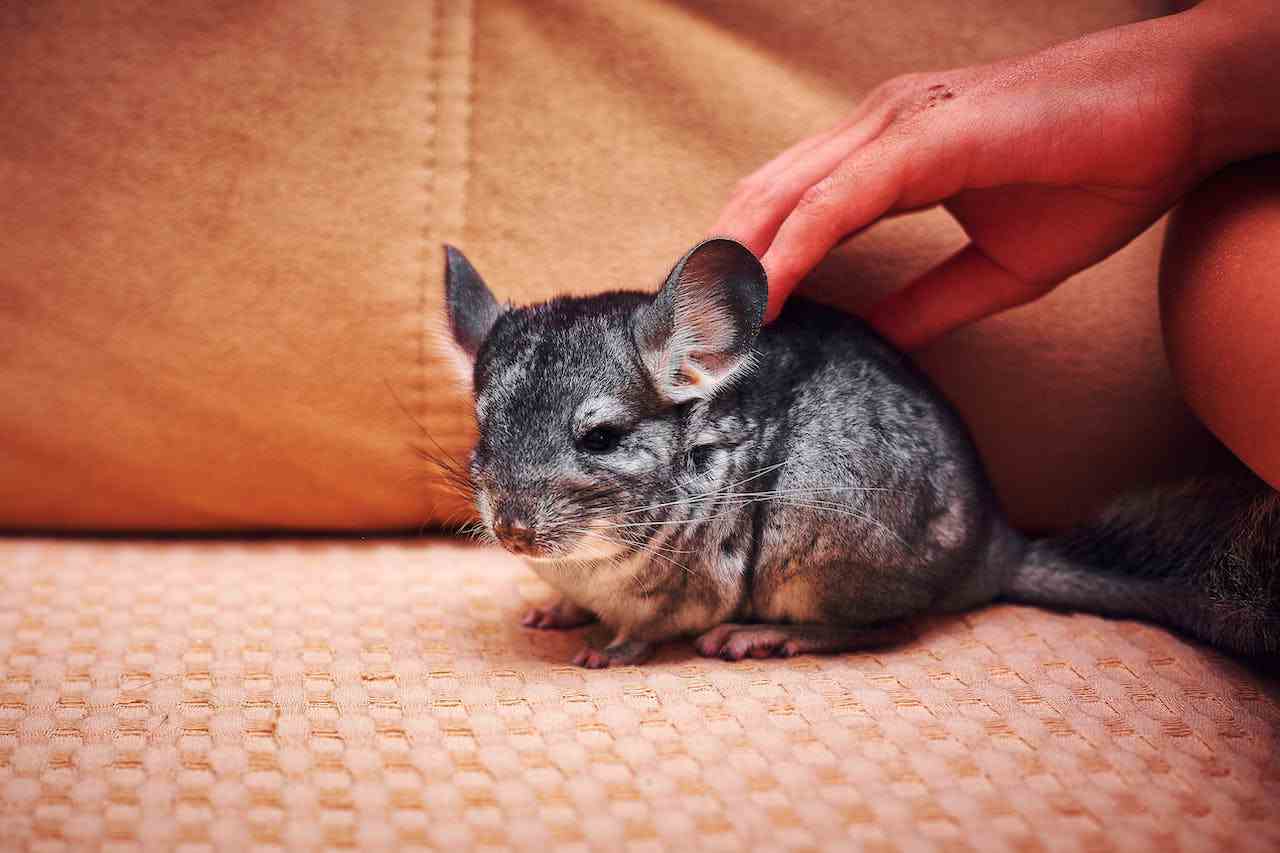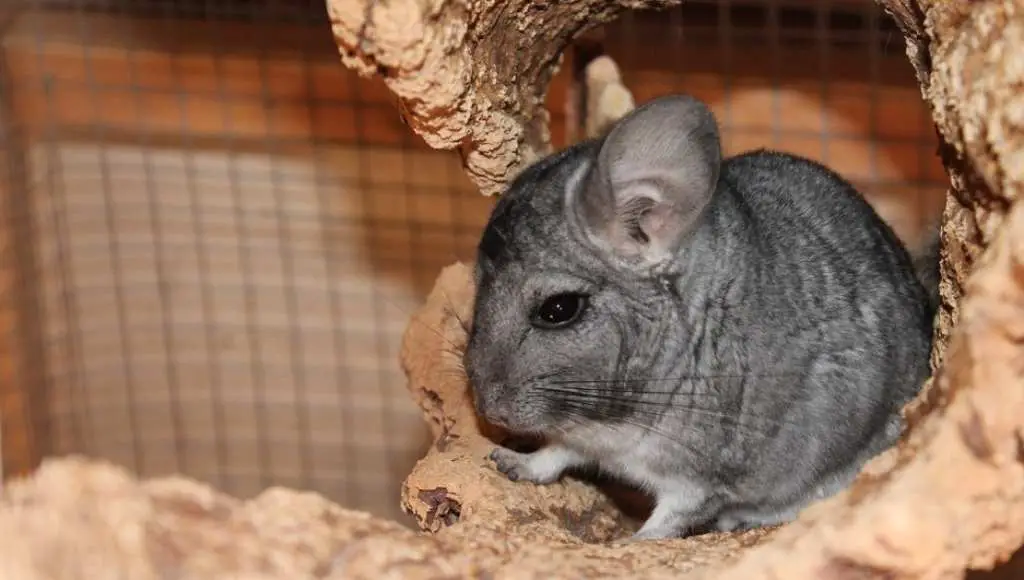14 Top Chinchilla Senior Care Tips

Are you the proud parent of a chinchilla who’s getting up there in age? Well, today’s blog post is just for you!
We’re diving into the world of chinchilla senior care, sharing some tips and tricks to keep your furry friend happy and healthy in their golden years.
Let’s jump right in, shall we?
Chinchilla Senior Care
Chinchilla senior care is a specialized service dedicated to providing top-notch care for elderly chinchillas.
As chinchillas age, they may require special attention to their diet, exercise, and overall comfort.
It’s important to provide a quiet and peaceful environment for senior chinchillas, as they may become more sensitive to stress.
Regular veterinary check-ups are crucial to monitor their health and address any age-related issues.
Additionally, gentle handling and interaction can help senior chinchillas feel loved and secure.
By being attentive to their changing needs, you can ensure that your senior chinchilla enjoys a comfortable and fulfilling life.
Let’s break it down further…
Ways of caring for older chinchillas

Here are some effective ways of caring for older chinchillas:
1. Spend quality time with your older chinchilla
As chinchillas age, they may become less active and require more companionship.
Spending quality time with your older chinchilla is essential for their mental and emotional well-being.
Engage in gentle interactions such as gentle petting, talking softly, or simply sitting near their cage to provide comfort and companionship.
Regularly interacting with your chinchilla will not only help strengthen the bond between you two, but also provide mental stimulation and prevent loneliness.
2. Dietary adjustments and considerations for your older chinchilla
As chinchillas age, their metabolism changes, and their nutritional needs may differ from younger chinchillas.
It’s important to adjust their diet accordingly. Firstly, ensure that your older chinchilla has access to fresh hay at all times.
Hay provides essential fiber for their digestive health. Additionally, you may need to introduce softer hay options, such as second-cut hay, to make chewing easier for them.
When it comes to pellets, opt for high-quality, age-specific pellets that are low in fat and sugar.
These formulations are designed to meet the specific nutritional requirements of older chinchillas.
Avoid treats that are high in sugar or fat, as they can lead to weight gain and other health issues.
3. Monitor your older chinchilla’s food and water intake
Keeping a close eye on your chinchilla’s food and water intake is crucial, especially as they age.
Ensure that fresh water is available at all times and clean their water bottle or dish daily.
Chinchillas can be susceptible to dehydration, so encourage them to drink by providing fresh water and, if necessary, offering water-rich foods like cucumbers or melons.
Monitor their food intake to ensure they are eating enough. If you notice a decrease in appetite, it could be a sign of an underlying health issue.
In such cases, consult a veterinarian promptly. Additionally, keep an eye out for any changes in their droppings or weight, as these can be indicators of health concerns.
4. Offer lots of mental stimulation
Just like humans, chinchillas need mental stimulation to stay happy and healthy.
As chinchillas age, providing them with plenty of mental challenges becomes even more important.
One way to do this is by creating an enriching environment. Consider adding toys, tunnels, and platforms to their cage that encourage exploration and play.
You can also rotate toys and rearrange the cage periodically to keep things interesting for your furry friend.
Another idea is to introduce puzzle toys or treat-dispensing toys that require problem-solving skills to access the treats.
This will give your older chinchilla a mental workout while providing a tasty reward.
5. Ensure your older chinchilla has access to fresh water
Hydration is crucial for chinchillas of all ages, and it becomes even more important as they get older.
Make sure your older chinchilla has constant access to fresh, clean water. Consider using a water bottle with a sipper tube attached to the cage to provide a steady supply of water.
Regularly check the water bottle and tube to ensure they’re functioning properly and not clogged.
Additionally, it’s a good idea to monitor your chinchilla’s water intake and make sure they are drinking enough.
If you notice any changes in their drinking habits, consult a veterinarian for further guidance.
6. Provide dental chew toys for your older chinchilla
Chinchillas have continuously growing teeth, so dental health is a critical aspect of their overall well-being.
As chinchillas age, their teeth may become more prone to issues like overgrowth or malocclusion.
To help keep their teeth in good condition, provide your older chinchilla with appropriate dental chew toys.
These toys are usually made of wood or other safe materials and help wear down their teeth naturally.
Chew toys not only promote dental health but also offer an enjoyable activity for your chinchilla.
Ensure the toys are safe, free from toxins, and regularly inspect them for signs of wear or damage.
7. Gently brush their fur regularly to remove loose hair
Brushing your older chinchilla’s fur is essential to maintain their coat’s health and prevent matting.
As chinchillas age, they may have a harder time grooming themselves, so lending them a helping hand is crucial.
Use a soft-bristled brush and gently run it through their fur, removing any loose hair.
This not only keeps their coat clean but also reduces the chances of fur ingestion, which can lead to digestive issues.
8. Ensure your older chinchilla’s cage is spacious
Older chinchillas benefit from having a spacious cage that allows them to move around comfortably.
As they age, they may experience joint stiffness or arthritis, so having enough room to stretch and exercise is important for their overall well-being.
A large cage with multiple levels, platforms, and hiding spots provides mental stimulation and promotes natural behaviors.
Ensure the cage is secure and chinchilla-friendly, with appropriate ledges and platforms to prevent falls and injuries.
9. Keep an eye on your chinchilla’s weight and body condition
Monitoring your older chinchilla’s weight and body condition is crucial for their health.
Chinchillas can be prone to weight gain, which can have adverse effects on their overall well-being.
Obesity can lead to a variety of health issues, such as joint problems, heart disease, and a shorter lifespan.
Regularly weigh your chinchilla using a digital scale and consult with a veterinarian to determine their ideal weight range.
Adjust their diet accordingly, providing a balanced and nutritious diet with limited treats.
Additionally, ensure they have plenty of opportunities for exercise outside of their cage, such as supervised playtime in a safe, chinchilla-proofed area.
10. Keeping their environment cool and avoiding extreme temperatures
When it comes to older chinchillas, it’s crucial to maintain a cool and comfortable environment for them.
Chinchillas are native to the cool Andes Mountains, so they are more sensitive to heat and humidity.
Make sure their living space is well-ventilated and kept at a temperature between 60–70 degrees Fahrenheit (15–21 degrees Celsius).
Avoid placing their cage in direct sunlight or near heat sources like radiators or heaters.
Additionally, provide them with a dust bath a few times a week to help regulate their body temperature and keep their fur clean.
11. Clean and disinfect the habitat of your older chinchilla
Keeping your chinchilla’s habitat clean is crucial for their health. Regularly clean the cage by removing any waste, uneaten food, and soiled bedding.
It’s a good idea to spot clean daily and do a thorough cleaning once a week.
Use a mild, chinchilla-safe disinfectant to clean the cage and accessories, ensuring they are thoroughly rinsed and dried before putting them back.
This helps prevent the buildup of bacteria and keeps your furry friend’s home fresh and hygienic.
12. Be gentle when handling your older chinchillas
When handling older chinchillas, it’s important to be extra gentle and cautious.
Their bones may become more fragile over time, so handle them with care to avoid any accidental injuries.
Approach your older chinchilla calmly and speak softly to reassure them. When picking them up, support their entire body to prevent any stress on their limbs.
Avoid sudden movements and make sure they have a secure grip on your hand or arm.
Remember to provide a comfortable and safe environment for your chinchilla to explore and play, allowing them to move at their own pace.
13. Scheduling regular check-ups with a qualified exotic veterinarian
Regular veterinary check-ups are essential for the overall health and well-being of older chinchillas.
Find a veterinarian who specializes in exotic animals or has experience with chinchillas.
During these check-ups, the vet will conduct a thorough examination, including checking their teeth, nails, fur, and weight.
They may also perform blood tests or other diagnostic procedures if necessary.
These visits allow early detection of any health issues and ensure that your chinchilla is receiving proper care and treatment.
14. Providing additional vet-approved supplements
As chinchillas age, their nutritional needs may change.
It’s important to consult with a veterinarian about the specific dietary requirements of your older chinchilla.
They may recommend additional supplements to support their aging bodies.
For example, chinchillas require a high-fiber diet, so your vet may suggest providing extra hay or offering specific chinchilla pellets designed for seniors.
They may also recommend vitamin C supplements, as chinchillas cannot produce this vitamin on their own.
However, it’s crucial to follow your vet’s guidance and avoid self-medicating or providing supplements without professional advice.
FAQs
How do I know if my chinchilla is considered a senior?
Typically, chinchillas are considered seniors once they reach the age of 7 years or older. However, it’s important to remember that each chinchilla is unique, and some may show signs of aging earlier or later than others.
What are some common health issues that senior chinchillas may face?
As chinchillas age, they may become more prone to certain health issues, such as dental problems, arthritis, and digestive issues. Regular veterinary check-ups and a balanced diet can help to mitigate these issues.
How should I adjust my senior chinchilla’s diet?
Senior chinchillas may require adjustments to their diet to accommodate their changing nutritional needs. It’s important to provide them with high-quality pellet food that is specifically formulated for senior chinchillas. Additionally, adding softer treats and increasing their fiber intake can help support their digestive health.
Learn more about what chinchillas can eat and what chinchillas can not eat.
How can I help my senior chinchilla stay active and mentally stimulated?
Regular exercise is crucial for senior chinchillas to maintain their physical and mental well-being. Providing them with plenty of opportunities to explore, climb, and play can help keep them engaged and prevent boredom. Also, rotating toys and providing chew toys can help keep their teeth healthy.
What should I do if I notice any changes in my senior chinchilla’s behavior or health?
If you observe any changes in your senior chinchilla’s behavior or health, it’s important to consult with a veterinarian who specializes in exotic animals. They can assess your chinchilla’s condition and provide appropriate treatment or advice.
How can I create a comfortable living environment for my senior chinchilla?
To create a comfortable living environment for your senior chinchilla, ensure their cage is spacious, well-ventilated, and free from drafts. Provide soft bedding and cozy hiding spots. Additionally, maintain a consistent temperature and humidity level, as chinchillas are sensitive to extremes. Regularly cleaning their cage and providing fresh water and food is also essential for their well-being.
Learn more about chinchilla likes and dislikes.
Conclusion
In conclusion, caring for your senior chinchilla is an important responsibility that requires attention and understanding. By providing a comfortable and stimulating environment, regular veterinary check-ups, and a balanced diet, you can ensure a happy and healthy life for your furry friend in their golden years. Remember, love and care can make all the difference in keeping your chinchilla thriving in their senior years.
